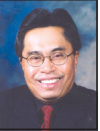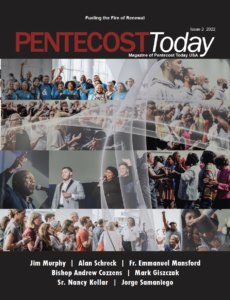Still active in today’s world
We read in the book of Luke 7:20–23, When the men came to Jesus, they said, “John the Baptist has sent us to you to ask, ‘Are you the one who is to come, or should we look for another?’” At that time, he cured many of their diseases, sufferings, and evil spirits; he also granted sight to many who were blind. And he said to them in reply, “Go and tell John what you have seen and heard: the blind regain their sight, the lame walk, lepers are cleansed, the deaf hear, the dead are raised, the poor have the good news proclaimed to them.” Jesus Christ is indeed the Divine Physician and the source of all healing.
Teaching of the Roman Catholic Church regarding healing
The Catechism of the Catholic Church asserts that, “Christ’s compassion toward the sick and his many healings of every kind of infirmity are a resplendent sign that ‘God has visited his people’ and that the Kingdom of God is close at hand. Jesus has the power not only to heal, but also to forgive sins; he has come to heal the whole man, soul and body; he is the physician the sick have need of”(1503).
In the book, Instruction on Prayers for Healing, published by the Congregation for the Doctrine of the Faith, we read, “Christ’s meeting with the sick is one of the most human aspects we find in the Gospels. This meeting is for the total, global salvation of the person, and not only to bring bodily health alone, overcome physical sickness and hence avoid ‘becoming bogged down in the impossible aim of finally defeating death.’ The meeting between Christ and the sick, is, both in the Gospels and still today, to heal the person in his or her totality, and hence with a dimension of eternity.”
Pope Benedict XVI, in his book, Jesus of Nazareth, writes that “Healing is an essential dimension of the apostolic mission and of Christian faith in general. It can even be said that Christianity is a ‘therapeutic religion, a religion of healing.’”
According to Guidelines of Prayer For Healing, a booklet published by the Doctrinal Commission of the International Catholic Charismatic Renewal Services (ICCRS), there are four basic categories of healing, namely physical healing: the healing from physical sickness and disability; psychological healing: the healing of wounds to the human psyche, including emotional wounds; spiritual healing: this means, above all, the “healing from sin” that restores a person to a relationship with God; and exorcism and deliverance.
How to pray for healing and achieve results:
In exercising the ministry of preaching, teaching, and healing in many countries throughout the world, I can attest that healing the sick in the name of Jesus is one of the most effective tools for evangelization. I have witnessed people who came to know the loving and the saving power of the Lord Jesus Christ through the ministry of healing.
“These signs will accompany those who believe: in my name they will drive out demons, they will speak new languages, they will pick up serpents, and if they drink any deadly thing, it will not harm them. They will lay hands on the sick, and they will recover” (Mk 16:17-18). In the light of what Jesus said, any baptized believer can pray for the sick. While it is true and generally recognized that there are particular charisms of healings given only to some, this should not preclude any baptized Christian from praying for the sick.
The following are some of the ways of praying for healing, especially physical healing, to achieve results. This list is by no means exhaustive nor exclusive:
- Have a constant, personal, intimate, day by day and moment by moment relationship and fellowship with the Lord. Without this kind of relationship with him, one’s life is devoid of real power. In John 15:5, 7, Jesus asserts, “I am the vine, you are the branches. Whoever remains in me, and I in him, will bear much fruit, because without me you can do nothing.” ”If you remain in me, and my words remain in you, ask for whatever you will, and it will be given unto you.”
- Avail yourself of the sacraments of the Church, especially the sacraments of Reconciliation and the Eucharist. The healing minister may encourage the sick to do the same.
- These are the most powerful sources of healing, including the sacrament of the Anointing of the Sick. The Catechism (1509) states, “The Church believes in the life-giving presence of Christ, the physician of souls and bodies. This presence is particularly active through the sacraments, and in an altogether special way through the Eucharist, the bread that gives eternal life and that St. Paul suggests is connected with bodily health.”
- Always say a ”protective” prayer before the healing session to prevent any contamination or transference of spirits of affliction and infirmity into anyone. A prayer of command invoking the name and the blood of Jesus for protection and to bind any spirit of harassment or retaliation is recommended.
- Invoke Mary and the Holy Angels for their intercession and protection.
- Have an expectant faith. “I say to you, if you have faith the size of a mustard seed, you will say to this mountain, ‘Move from here to there and it will move. Nothing will be impossible for you.’”(Lk 17:6). Have faith that the Lord can work in and through you for his glory.
- Ask questions and listen attentively to the person to whom you are ministering before you start praying. Information such as the kind of sickness the person is suffering from, the doctor’s diagnosis, the person’s faith in the healing power of Jesus, may guide you on how to proceed in praying for the sick.
- Lay hands on the sick. Jesus laid hands on the sick and healed them. However, proper discretion should be used with the laying on of hands.
- Use the name of Jesus. There is power in the name of Jesus. “If you ask anything of me in my name, I will do it” (Jn 14:14).
- Be open to the Holy Spirit and his gifts, especially prophecy, word of knowledge, and discernment of spirits. These are great tools in conducting the ministry of healing.
- Obey the voice of the Lord. Obey the leadings and the promptings of the Holy Spirit. “Obedience is better than sacrifice, submission than the fat of rams” (1 Sm 15:22).
- “Call the things that are not as though they were” (Rom 4:17). I personally describe it as a “build up prayer.” An example of this is a prayer asking the Lord for brand new eyes for the blind or brand new eardrums and auditory nerves for the deaf and so forth. “For God, nothing is impossible at all” (Lk 1:37).
- Ask Jesus to apply his precious blood and his healing touch into the diseased parts of the person’s body. “By his stripes, we were healed” (Is 53:5).
- “Seal” the healing with the blood and the name of Jesus and the mantle of the Virgin Mary so that the healing may last. This could prevent symptoms and the sickness itself from recurring.
- Pray a “cleansing prayer” after the healing session. This prayer is intended to prevent any entity or spirit of infirmity and/or spirit of retaliation to attach itself to anyone involved in the healing prayer. Prayers for refreshment of mind and body and renewed anointing from the Holy Spirit are also desirable at this time.
- Give praise to God’s goodness and his healing love. “Through him, let us continually offer God a sacrifice of praise, that is, the fruit of lips that confess his name” (Heb 13:15).
Bob Canton is a Council Member for the Vatican based ICCRS representing the English-speaking North America, Central America and Caribbean Countries.


 Click Here for us to pray for your intentions through our new website.
Click Here for us to pray for your intentions through our new website. 
